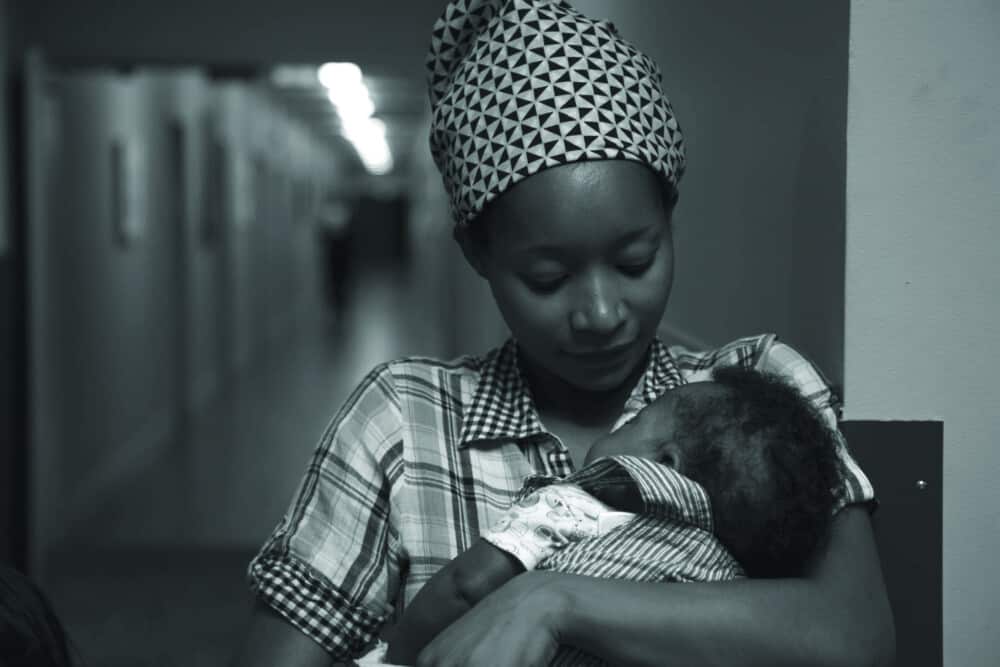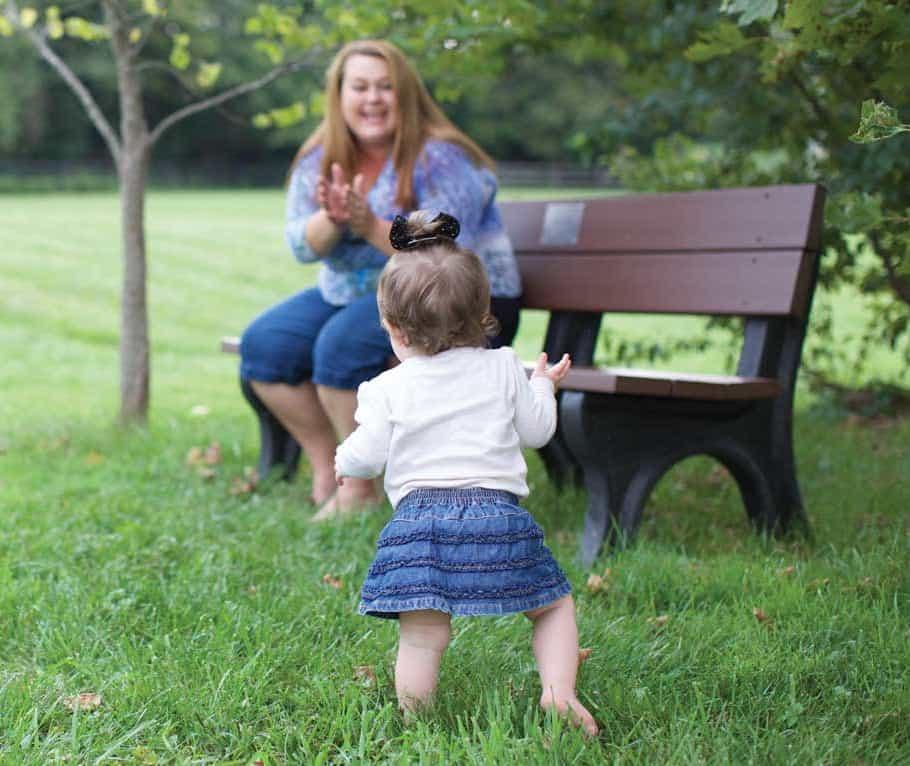

We imagine our community without intimate partner abuse. And believe you want this too. Until the violence ends, we commit to nurture lives harmed.
Open the print-friendly version of this information at this link.
Few renovations were necessary in 2005 when we moved to the 17,000 square-foot facility previously occupied by Bellewood Presbyterian Home for Children in rural Fayette County. After more than a decade of providing services from the shelter, additional capacity and improved space were desperately necessary to meet the changing needs of intimate partner abuse survivors in our community.
The vision for our shelter renovation began three years ago during a shelter visit with staff from EOP Architects, the Lexington-based firm known for the Kentucky International Convention Center Renovation and Rupp Arena Reinvention. With their guidance and professional support, a plan began to take shape.
Discussions were informed by Building Dignity, a best-practice guide to design domestic violence shelters. Our conversations explored how use of the facility influences policies and practices, what survivors and their children find challenging about the structure, and how the building could support our mission more effectively.
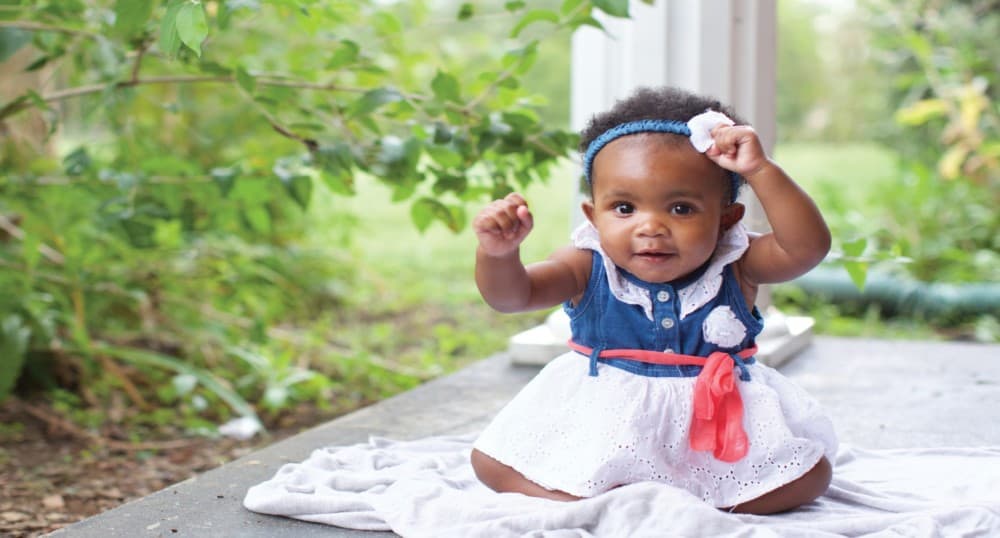
IDENTIFYING SOLUTIONS
The following solutions were identified to improve the shelter facility and experience:
- Increase shelter capacity by 10 beds.
- Improve safety at shelter lobby entrances.
- Improve use of shared spaces in the facility.
- Maximize efficiency of staff work spaces.
SECURING SUPPORT
Estimates for the renovation totaled $525,000. Request for support was submitted to LFUCG Grants and Special Programs. Following competitive review and public hearings, we received notification of $420,000 in Community Development Block Grant (CDBG) Program funding. The construction contract was awarded to Elaine Allen LLC, a Lexington-based construction management firm.
Construction began in January 2019. Early project efforts focused on the west and east wings of the facility, where survivor bedrooms are located. Renovation continued throughout the spring to address safety and use of the shelter’s shared spaces, including the crisis office, lobby, accessible shelter bedroom, children’s play area, and large support group and meeting room.
Although early efforts secured much of the funding required, approximately $100,000 was needed to fully realize project plans. The Progress & Possibility campaign was created to help meet this gap.

Today, your gift will support the care and maintenance of our renovated spaces for years to come. And remind survivors that our community cares about their well-being.
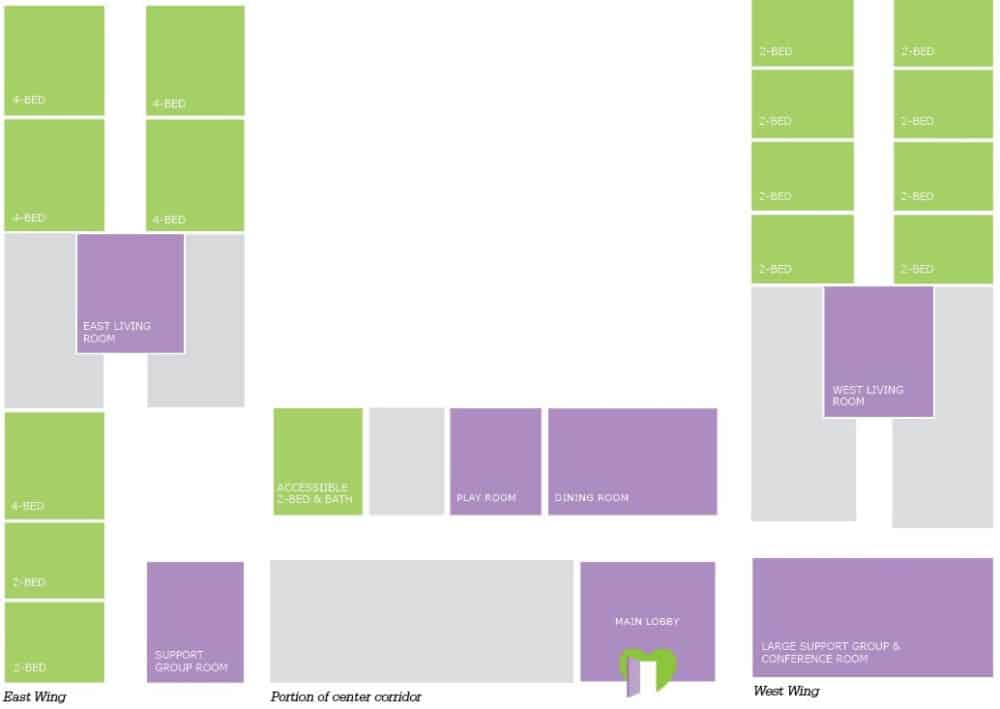
NAMING OPPORTUNITIES
For 20-year duration with gift or pledge:
Large Support Group & Conference Room, $25,000(funded)- Main Lobby Area, $20,000
- Dining Room, $15,000
- Children’s Play Room, $10,000 (funded)
- Support Group Room, $10,000 (funded)
- Living Rooms (2 available), $7,500
BEDROOM ADOPTIONS
Include care and upkeep over five years, fulfilled by gift or pledge with first option to renew:
- Bedroom with four beds (3 of 5 available), $5,000
- Accessible bedroom and bath (1 available), $3,000 (adopted)
- Bedroom with two beds (3 of 10 available), $2,500
A CHAIR AT THE TABLE
A Chair at the Table in our Large Support Group and Conference Room makes a meaningful recognition for retired social servants, charitable family members, and individuals harmed by intimate partner abuse. Inspired by words from Midy Aponte and Shirley Chislom. Each chair at the table will be commemorated with installation honoring donor and namesake.
- Chair (11 of 16 available), $1,000
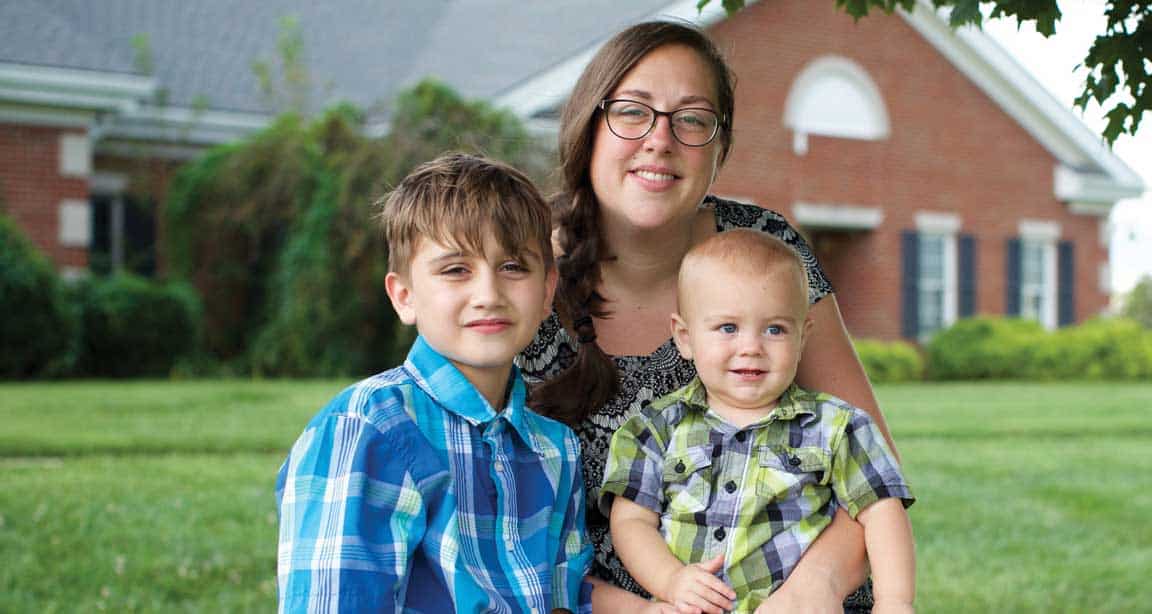
VICTORIA’S STORY
“That night when I heard the lock on the door click for the last time, I made up my mind. No one else was ever going to control me like that again.”
“He had cameras on me 24/7. Even though he said it was for home security, he would yell at me through the thing. He had cube trackers on the keys, so he always knew where I was.”
Although Victoria worked outside the home, she was never able to save money because her abuser took the majority of her paycheck. She longed for independence but knew there would be consequences if she pushed back.
“There was always a lock and key in the closet. I knew if we were ever to get into an argument he would lock me out of our house.”
Making Connections
Victoria found healing at the emergency shelter. She met with her family advocates and attended support groups every day. While her safety concerns and legal matters were being addressed, she began to participate in nature-based healing activities.
“On my first day on the farm, I knew it was going to be very interesting. It is not easy work. It was hot and humid and there were bugs, but that’s nature. That’s also what really helped me center myself.”
The stipend Victoria earned helping on the farm paid for gas to and from her part-time job in a nearby town. Being able to keep her job while living in shelter made the transition to independence much quicker than she expected.
“I’ve connected in ways that I’ve always been curious about. You have to be open to the experience, but hard work never hurt anyone.”
Preparing for Possibility
With the support of our housing advocates, Victoria is preparing to move into her own apartment really soon.
